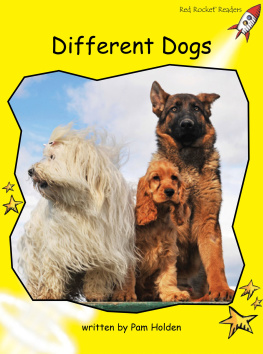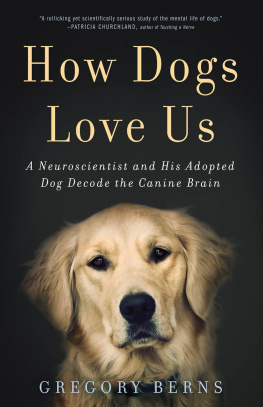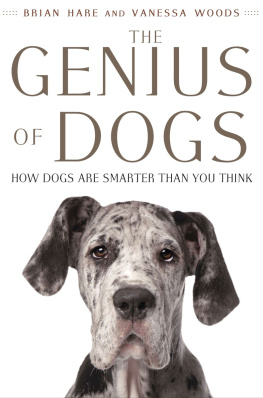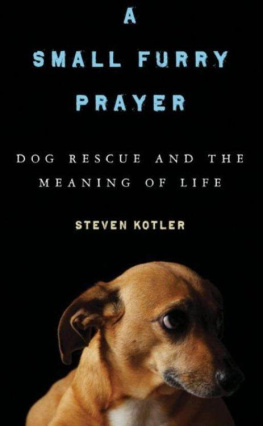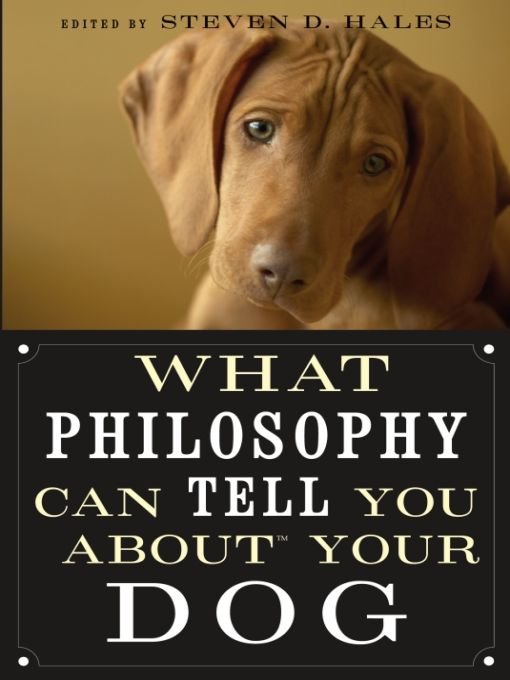Table of Contents
Also Available from Open Court
What Philosophy Can Tell You about Your Cat edited by Steven D. Hales
Kibitz and Bits
STEVEN D. HALES
About ten thousand years ago, dogs decided to do a very surprising thing: they decided to gamble their fortunes on human beings, and throw their lot in with ours.
No doubt wolves, foxes, and coyotes at the time found this plan baffling. Join up with those big-headed hairless apes? Nevertheless, for ten millennia our evolutionary paths have joined together, and on the human side, this arrangement has worked out very nicely. Weve used dogs to hunt, to herd, to guard us from our enemies, to pull our sleds across the frozen tundra, to rescue Alpinists with kegs of brandy, and to be our boon companions. Weve even trimmed, fluffed, and blow-dried them for dog shows, and the Hollywood glitterati have used them as fashion accessories. For the most part, Canis lupus familiaris has done well by this pact, too. When I come home from the grocery store, my dog is sure that I have returned victorious from the hunt, and am now ready to share the kill, which evidently has been conveniently prepackaged into Pupperonis and Milk Bone biscuits. Said kill can be pleasantly enjoyed while lying on an old army blanket over a radiant-heated slate floor.
There are those unfortunate dogs who have fallen into the hands of sociopaths who breed them for dog-fighting, in an effort to compensate for the underendowments of their manhood. While true dog aficionados naturally decry such brutality, it may be that we too havent sufficiently pondered our own relationships with our dogs. Indeed, the reconsideration of the very familiar is a natural pathway into philosophy. Plato wrote that philosophy begins in wonder, and we would do well to wonder at the lives we have made with our dogs.
Theres nothing like trying to train a puppy to take ones head out of the clouds. Young dogs are full of energy, play, and instincts that must be masteredor at the very least understood and positively channeledif they are to be fit members of our packs. Training a dog is not for the overbooked, or the faint of heart. Like their owners, dogs have different temperaments and personalities, and training requires figuring these things out. In Part I of the book, our authors consider the philosophical ramifications of training canines.
Does your dog embarrass you because his behavior says more about you than you would like?
Is effective dog training impossible unless we assume that our dogs have thoughts, beliefs, desires, and intentions?
How can dog training, crating, and invisible fences enhance your dogs freedom even as they curtail her freedom?
The classic dogs versus cats joke is that dogs think, My people keep me warm and dry, feed me good food, pet me, brush me, and play with me. They must be gods! Cats, on the other hand, think, My people keep me warm and dry, feed me good food, pet me, brush me, and play with me. I must be a god!
But what actually goes on in that thick furry head? Does my dog really have any thoughts about me? Does he actually think that a parking meter is a pay toilet? Our dogs seem playful, eager to please, aggressive, attentive, or display any number of other personality traits. At leastthats how we interpret their behavior. In Part II, we take a close look at what our dogs might be thinking, if anything, and how we can get inside their heads.
Are guide dogs for the blind literally an extension of their owners mind?
Was French philosopher Ren Descartes right in maintaining that dogs are mere automata, mindless, soulless, clock-like mechanisms without language or love?
If our dogs think, then do insects think as well? If bees are just robots, then why arent dogs?
What does your dog think aboutyou?
If a dog fails to recognize its own leg as part of its body, what should we conclude about canine reasoning and intellect?
We hear that dogs are our best friends. Perhaps youre skepticalafter all, how many of your friends have you neutered? Nevertheless, the evidence is in. Dogs do indeed add to our lives and lengthen our days; they insulate us against loneliness and isolation, lift the spirits of the depressed, and cheer sick children in hospitals. Studies have shown that dog-owning senior citizens are more active and live longer than those without canine companionship ; throwing the ball all afternoon for Rex is certainly more exercise than watching Lassie re-runs on TV. Benjamin Franklin wrote that there are three faithful friendsan old wife, an old dog, and ready money. But just what is it to be friends with our dogs, that they should measure up to old spouses and ready money? In the next Part, our professional thinkers ponder these issues:
How can your habits and routines with your dog create genuine friendship?
Why do you like your dog more than your teenager?
What does your dog know about being an animal that you dont?
Will cloning bring back your long-lost childhood dog?
You might think that dogs must be the least logical, the least metaphysically oriented animals there are. Cats might seem inclined to the more abstract, but dogs are here-and-now, practical, action-oriented. At this point in the book our authors have considered what our dogs might be thinking, but next they step off into more rarefied realmshow might our dogs be reasoning? The contemplations of my dog seem mostly concerned with effectively making the great tripartite division of the world: is it to be eaten, rolled in, or peed on? As it turns out, there is much to say about logic and metaphysics for dogs.
In 1615 King James of Scotland and England (ofKing James Biblefame) hosted a debate on the use of logic by dogs. Who won and why?
Some people think there is no provable difference between a Saint Bernard and a Chihuahua. Why would anyone think that?
You and your dog have different perceptions, different perspectives of the world. How can you be sure that you and your dog inhabit the same objective world?
Are there really perfectly bounded, ideal dog breeds, or are they all just a bunch of dawgs?
Affection and friendship are part of our relationships with our dogs, but theres also the more mundane. We have to walk them, make sure they have exercise, clean their yards, feed them, brush them, take them to the vet, give them heartworm pills. Some owners primp their dogs for shows, or breed them for conformity to the ideal Doberman, Cocker Spaniel, or Weimaraner. Others buy their dogs exotic luxuriestrips to spas, doggy day camp, air-conditioned dog houses, filet mignon. We often treat our dogs like furry, four-legged children. But sometimes even the most besotted parent can step back and wonder, am I doing the right thing? Is it too much to think that an Airedale is my son? Is an obsession with being AKC-registered respectful of the dignity of our dogs? Do we have any real reason to think that we have moral responsibilities of any sort to our dogs, or are they just sort of hobbies of ours? In the final Part, Canine Ethics, our authors consider just such matters.


